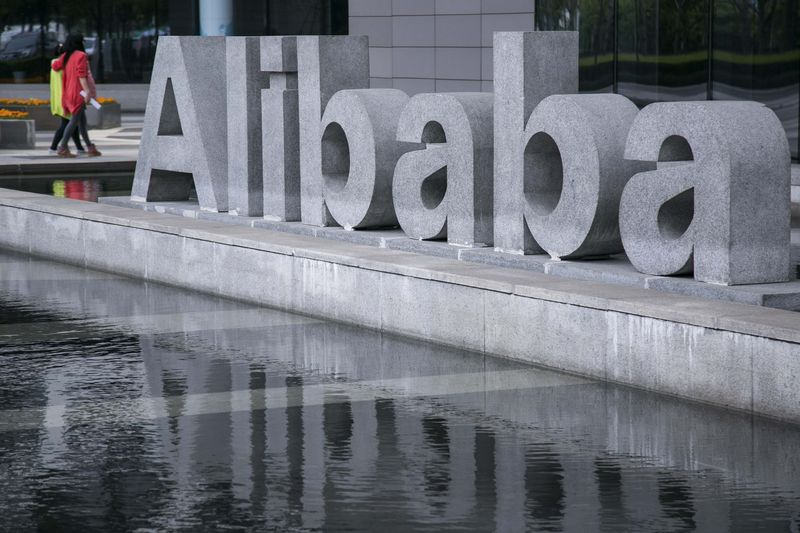Stock market today: S&P 500 extends monthly win streak despite Nvidia-led stumble
Investing.com -- Alibaba (HK:9988) (NYSE:BABA) has unveiled a new cloud-computing chip designed to handle a wider range of AI inference tasks, marking a step beyond its earlier, more specialized processors, the Wall Street Journal reported on Friday.
The move comes amid Beijing’s broader push to build a self-sufficient AI supply chain as U.S. restrictions continue to limit China’s access to Nvidia’s most advanced chips.
Alibaba’s U.S.-listed shares rose 1.5% in premarket trading.
Once a major Nvidia (NASDAQ:NVDA) customer, Alibaba and other Chinese firms are now turning to homegrown designs after Washington curbed exports. President Trump temporarily allowed Nvidia to resume shipments of its H20 processor, but Beijing soon told companies to avoid the product, citing security concerns.
Unlike earlier Alibaba chips fabricated by Taiwan’s TSMC, the new processor is manufactured in China. It is aimed at AI inference—the process of applying trained models—rather than training, which still requires top-end Nvidia hardware.
Chinese factories, constrained by older equipment and U.S. restrictions on advanced tools, face limits on boosting output, the WSJ report said, citing industry insiders.
Other Chinese firms are also filling the gap. Shanghai startup MetaX launched a chip in July positioned as an H20 substitute, using older technology and combining two smaller chips to improve performance, the report said, citing people familiar with the matter.
It offers more memory but consumes more power, and the company is preparing for mass production.
Beijing is backing the push with heavy investment, including an $8.4 billion AI fund announced in January. Huawei has taken a leading role, showcasing its Ascend chips in systems that some analysts say outperform Nvidia’s top Blackwell setup on certain metrics, though with far higher energy use.
China’s biggest weakness remains training AI models, which depend on Nvidia’s most advanced chips. Alibaba’s new processor is focused on inference, not training, the report said.
Chinese engineers say domestic chips, including Huawei’s, often struggle with training runs, overheating or breaking down mid-process.
Meanwhile, DeepSeek, a startup challenging OpenAI, recently fueled a stock rally in China after hinting on social media that its software breakthroughs could pair with improved local chips to train some AI models.
